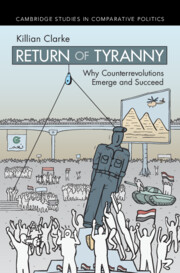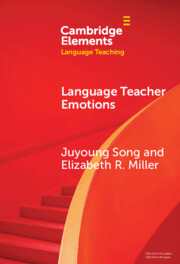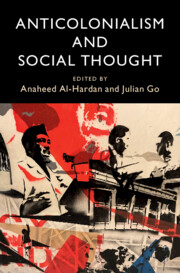Refine listing
Actions for selected content:
1294859 results in Books
Copyright page
-
- Book:
- My Own Past
- Published online:
- 30 September 2025
- Print publication:
- 18 September 2025, pp iv-iv
-
- Chapter
- Export citation
Case 14: - Hoarding Disorder
- from Part 1: - Vignettes
-
- Book:
- Practise Psychiatry
- Published online:
- 04 September 2025
- Print publication:
- 18 September 2025, pp 132-137
-
- Chapter
- Export citation
14 - Appraising Global Environmental Governance
- from Part II - Responding to Global Environmental Problems
-
- Book:
- Global Environmental Politics
- Published online:
- 04 September 2025
- Print publication:
- 18 September 2025, pp 312-323
-
- Chapter
- Export citation
Index
-
- Book:
- The Will in English Renaissance Drama
- Published online:
- 04 September 2025
- Print publication:
- 18 September 2025, pp 192-196
-
- Chapter
- Export citation
Part III - Research Paths: Cuba and Afro-Latin America
-
- Book:
- My Own Past
- Published online:
- 30 September 2025
- Print publication:
- 18 September 2025, pp 187-248
-
- Chapter
- Export citation
Chapter 4 - Last Wills and Remembrance
-
- Book:
- The Will in English Renaissance Drama
- Published online:
- 04 September 2025
- Print publication:
- 18 September 2025, pp 130-165
-
- Chapter
- Export citation
Case 44: - Voyeuristic, Exhibitionistic, Frotteuristic and Sexual Masochism and Sadism Disorders
- from Part II: - Topical MCQs
-
- Book:
- Practise Psychiatry
- Published online:
- 04 September 2025
- Print publication:
- 18 September 2025, pp 519-519
-
- Chapter
- Export citation
Chapter 8 - Peripatetic metriopatheia in the Tusculan Disputations
-
-
- Book:
- Cicero's <i>Tusculan Disputations</i>
- Published online:
- 11 September 2025
- Print publication:
- 18 September 2025, pp 142-162
-
- Chapter
- Export citation
Case 23: - Attention Deficit Hyperactivity Disorder
- from Part II: - Topical MCQs
-
- Book:
- Practise Psychiatry
- Published online:
- 04 September 2025
- Print publication:
- 18 September 2025, pp 494-495
-
- Chapter
- Export citation
Part III - Application and Adaptations for Mental Health Presentations
-
- Book:
- Cambridge Guide to Cognitive Behavioural Therapy (CBT)
- Published online:
- 18 November 2025
- Print publication:
- 18 September 2025, pp 85-276
-
- Chapter
- Export citation
Introduction
-
-
- Book:
- Rethinking the Lawyers' Monopoly
- Published online:
- 04 September 2025
- Print publication:
- 18 September 2025, pp 1-22
-
- Chapter
-
- You have access
- Open access
- HTML
- Export citation
Chapter Two - Resolving Conceptual Conflation
-
- Book:
- The Archaeology of Pastoralism, Mobility, and Society
- Published online:
- 04 September 2025
- Print publication:
- 18 September 2025, pp 56-104
-
- Chapter
- Export citation

Return of Tyranny
- Why Counterrevolutions Emerge and Succeed
-
- Published online:
- 17 September 2025
- Print publication:
- 23 October 2025

National Human Rights Institutions in Europe and Latin America
- International and Comparative Perspectives
-
- Published by:
- Intersentia
- Published online:
- 17 September 2025
- Print publication:
- 19 February 2024

Dicey + 100
- Albert Venn Dicey: A Centennial Commemoration
-
- Published by:
- Intersentia
- Published online:
- 17 September 2025
- Print publication:
- 29 January 2024

Modern Slavery and the Governance of Global Value Chains
-
- Published online:
- 17 September 2025
- Print publication:
- 16 October 2025
-
- Book
-
- You have access
- Open access
- Export citation

The Brick-and-Mortar Bookstore in Contemporary India
-
- Published online:
- 17 September 2025
- Print publication:
- 02 October 2025
-
- Element
- Export citation

Thomism and the Natural Sciences
-
- Published online:
- 17 September 2025
- Print publication:
- 09 October 2025
-
- Element
- Export citation

Language Teacher Emotions
-
- Published online:
- 17 September 2025
- Print publication:
- 09 October 2025
-
- Element
- Export citation

Anticolonialism and Social Thought
-
- Published online:
- 16 September 2025
- Print publication:
- 25 September 2025
